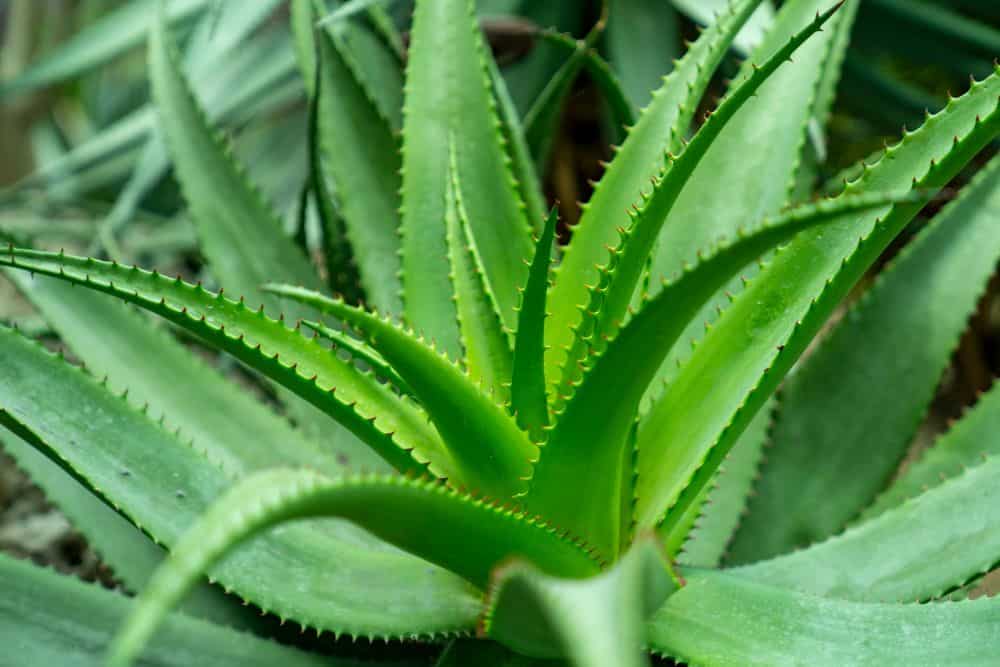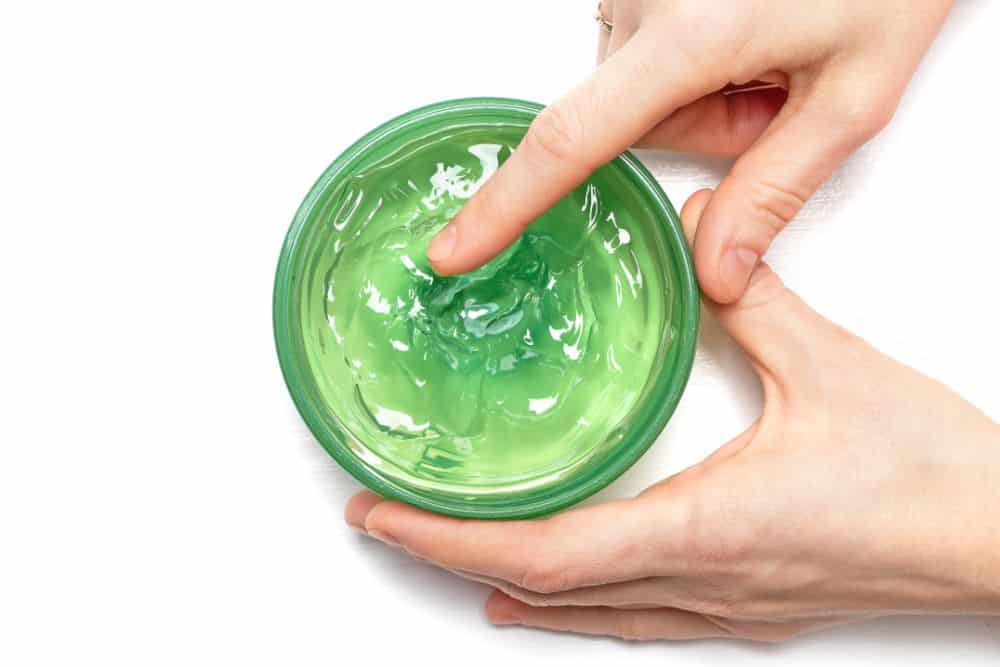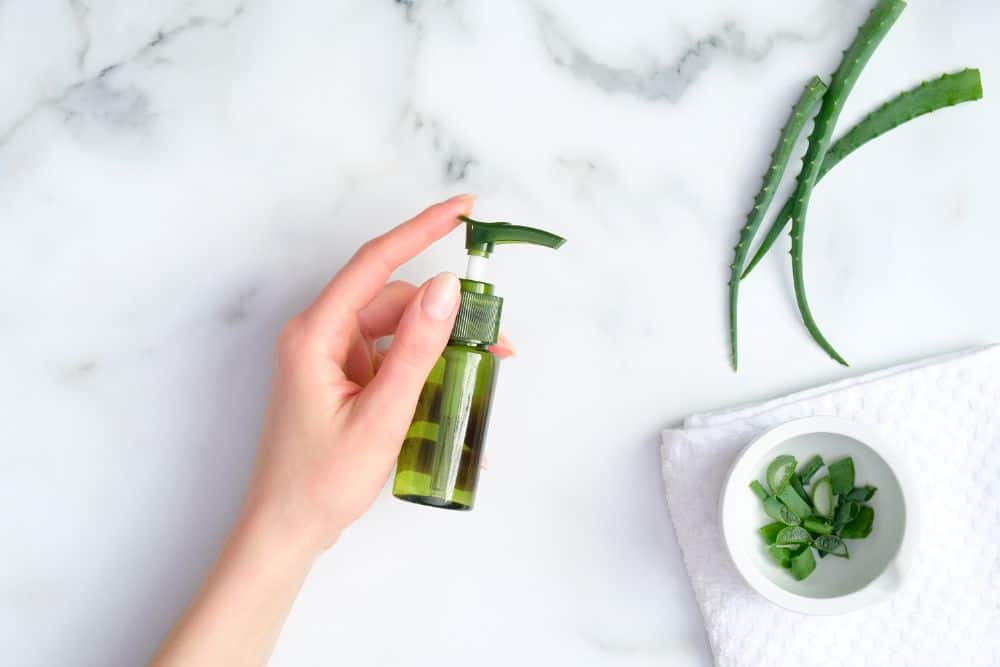The middle of summer is here and thriving! While we made some memories and are eager to hold onto the last few weeks before fall arrives, there is some drawback to our fun in the sun.
At this time of year, sunburns, mosquito bites, and other skin ailments are sure to crop up, running rampant and causing discomfort during one of the best times. Thank goodness for pure aloe vera gel!
To keep those inconvenient and sometimes painful rashes at bay so we can enjoy the summer as much as possible, most look to aloe vera gel as the magical cure-all!
Aloe vera gel is a magical composition famous for its healing properties and ability to soothe skin irritation. According to a study published by the NIH, aloe vera improves the absorption of vitamin C and Vitamin E. Whether you use it from the bottle or directly from an aloe leaf, everyone boasts about its powerful versatility, and it has for thousands of years!

But does aloe vera gel expire? How long does aloe last in the refrigerator, and what is the best way to keep aloe vera products fresh so its medicinal properties can be helpful year-round? Understanding proper storage and monitoring aloe leaves are crucial to success! Read on for more on keeping aloe good for ages!
How the Aloe Plant is Harvested and Processed to Create Aloe Vera Gel
Whether you try your hand at maintaining your aloe plant or decide to purchase a bottle of fresh aloe gel from the drug store, storing your aloe vera product in an airtight container in the fridge is the way to go. Some have voiced support for the freezer as well, especially for raw unprocessed aloe gel leaves.
Aloe vera is very sensitive to light, heat, and temperature. So it should be kept away from direct sunlight, away from heat, and in a dry area. The fridge suits all of these needs, not to mention that nothing feels better on a rough sunburn than cold, cooling aloe gel from the fridge.
With processed aloe, one can place the bottle wherever it fits in the fridge. With an aloe plant, one will need to separate a few leaves and wrap them securely in plastic wrap. Covering both ends of the aloe vera leaf and avoiding contact with open items in the fridge is also paramount to preservation.
While you can avoid the fridge if you lack the room, the aloe will not last as long for either raw or processed aloe vera gel. Processed aloe vera gel can last up to two years at room temperature if kept away from light and heat. However, putting it in the fridge extends the lifetime to five years!
Depending on whether your aloe is processed or directly from the plant, there are two different timelines for how long it can last without refrigeration.
Raw aloe gel, without preservatives, can be stored for 24 hours without refrigeration, at room temperature. Processed aloe gel can last 1-2 years at room temperature. It’s important to note that these storage spaces are still sensitive to the aloe plant, meaning it needs to be a place with no exposure to sunlight, heat, or moisture.

While many know immediately of aloe gel’s benefits - it can help to moisture skin and soothe sunburn pain - there are quite a few other health benefits healing tricks it has that go beyond the warm summer months:
There are many other benefits to aloe gel! While those are some of the topical advantages, ingesting aloe juice has also many assets. Drinking aloe vera juice can help with gastrointestinal issues, which is one such reason why people want to keep it around.
With all of these possible ailment cures, it’s no wonder why many want to preserve their aloe gel plant as long as possible.
Doing so not only keeps aloe on hand at all times but also extends the longevity of the healing properties. One should remember that the benefits of aloe gel don’t last as long without proper storage, so you might be throwing it out sooner than its original expiration date.
As with everything else in the fridge, aloe vera will eventually go bad. However, the lifetime is much longer for aloe vera in the fridge versus anywhere else. You can keep your aloe for up to five years or longer in the fridge!
After that, it will be time for a replacement. Replacing time depends entirely on whether it's raw or processed aloe vera gel.
Some argue for storage in the freezer, and while that can make the gel last longer, it can dull some of the powerful healing effects. It’s up to you and the frequency of aloe usage that will help you make that decision.
Processed Aloe vera gel can last up to five years or longer in the fridge. However, if you notice some expiration tell-tale signs before that, toss it.
If you’re storing raw aloe gel directly from your plant, it can stay in the fridge for up to a week if the leaves are wrapped properly. It can last one to two weeks in the freezer if that’s an option one would rather take for storage.

Yes, aloe vera can go rotten just like any other plant. Aloe vera will typically go rotten faster if taken directly from the plant, but aloe vera in bottles can also rot with time.
Storage is the most important thing! The fridge is one of the most popular choices, but the freezer is another contender others may prefer, especially if they’re only using aloe during the summer months and want to keep fridge space.
Aloe plant leaves need to be wrapped carefully to avoid exposure and will last up to a week in the fridge. If one decides to freeze it, it will last 1-2 weeks in the freezer.
One can tell that their aloe gel is expired in a few different ways:
If the odor of your aloe gel takes on a noticeably sour smell, then you know it’s time to chuck it.
An expired aloe gel will lack power for its healing properties.
A less exciting sign is that using the aloe creates more discomfort upon usage, rather than lessening it as intended. If skin becomes drier after using an older aloe and other noticeable pain or irritation arises, you should discard it.
While homemade aloe vera gel will be more obvious, the store-bought gel will have an expiration date on the bottle. Keep in mind that without proper storage the aloe gel can go bad sooner than that date.
Aloe gel is known for being clear; while some might be tricked into thinking its other colors based on the storage bottles, a healthy aloe gel is clear. If one notices cloudiness forming in the gel, time to dispose of it.
Raw aloe vera leaves will tell you it's rotting by the presence of mold on the leaves. The processed gel usually doesn’t have the presence of mold; instead, stick to the expiration date or if any other signs of rotting are present.
It’s critical to keep an eye on and evaluate your aloe gel from time to time. Continued usage of an expired aloe plant can do more harm than good!
Yes, aloe vera is a succulent plant. Succulents thrive in very dry conditions and are characterized by thick, tough leaves that serve as water storage for the plant. They are excellent at retaining water in conditions where rainfall is infrequent.
